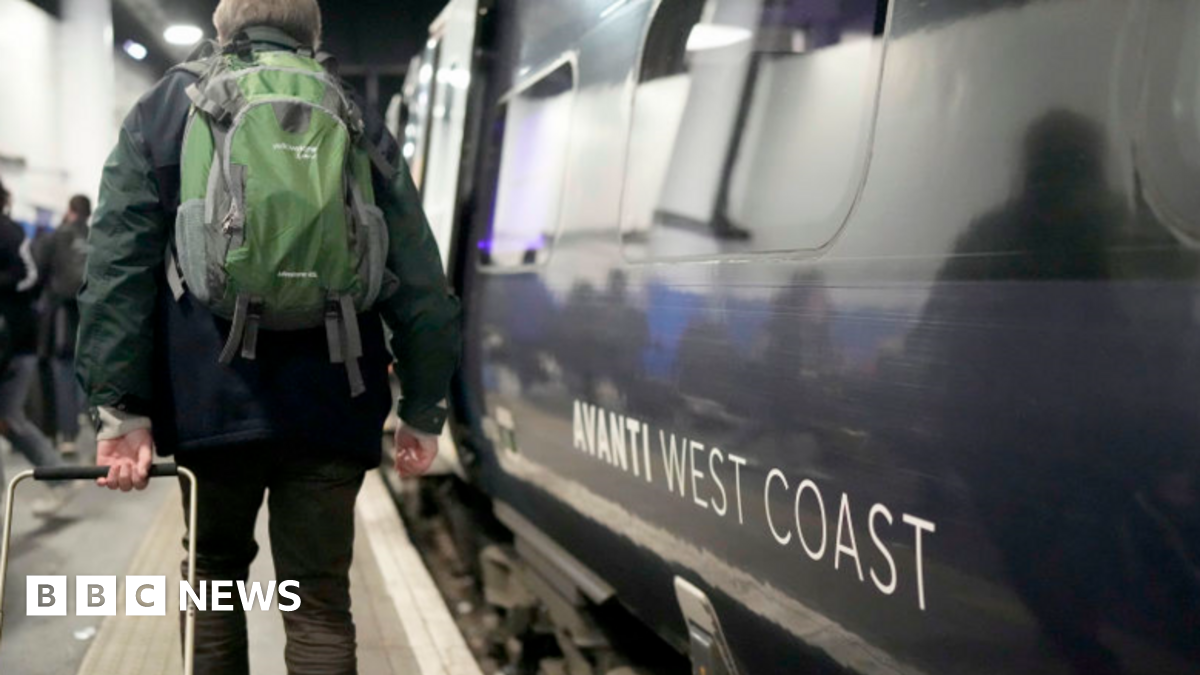Whether or not
Well-Known Member
- Joined
- 29 Sep 2019
- Messages
- 1,195
- Team supported
- MCFC
Very true. I now have a mental image of Nunes doing the bin collection on Avanti.Rail recruitment not as bad as ours tho
Very true. I now have a mental image of Nunes doing the bin collection on Avanti.Rail recruitment not as bad as ours tho
Very true. I now have a mental image of Nunes doing the bin collection on Avanti.
The unions have prevented privatisation killing passengers.Both the company and the staff are to blame IMO. Privatisation has been a total mess for the railways but the inflexibility of the unions has its own share of the blame.
If I board a train and see Nunes in the cab, and Savinho as the guard I'm straight off and fucking walking :-)Rail recruitment not as bad as ours tho
Overtime is not compulsory!Imagine supermarkets not opening because they haven't got enough staff or say schools and doctors surgeries?
Sunday services are shit because the workers don't have to work overtime because they get paid enough not to, they are not "Compelled" to. You work in an industry at least show some effort to provide a service, people complaining isn't the problem is it?
Overtime is not compulsory!
Work life balance is important to people these days.
The guards will be working a full week before deciding they don't want or need to work a rest day.
Why the fuck should they cover because there Company hasn't employed enough staff, would you do it?

It's a completely different situation though.They don't have to work because they are paid enough and don't feel the need to. Fuck the commuters ehh? is that how it is?
Now don't get me wrong I couldn't give that much of a fuck but...if trains are going to be cancelled as they have for a couple of years we should invest heavily in a bus service that works and put the shysters out of a job.
Again let me make this very clear, these fucks want a supermarket open when they need it, they want schools open without cancellations and they want all the other amenities open when they need them.
It's not just Sundays it's most days, lots of people work overtime and thank god they do, the public is running out of sympathy for them and it's about time.
But apart from that :)
View attachment 140768
It's a completely different situation though.
Supermarkets won't be running Sunday opening hours with staff on overtime, that is what the railways do.
The government, railway companies and Unions have had over 20 years to sort this mess out and we are literally no nearer to a solution.
Staff working overtime to run a basic service is an horrendous waste of money.
Special Sunday timetable now on Northern.Every Sunday recently, Northern are especially bad with rest day (not) working.
And Walker as the fat controllerIf I board a train and see Nunes in the cab, and Savinho as the guard I'm straight off and fucking walking :-)
You can't say that about Savinho because he's young. He's so young he's barely out of nappies.If I board a train and see Nunes in the cab, and Savinho as the guard I'm straight off and fucking walking :-)
I had an issue with Monarch Airlines. Fucking loved it when they went bust.Have a similar grudge for that tw@t from Ryanair dumping me and lad in Germany after Munich in 2023, cost me over a grand to get us home
Wouldn’t give him and his shit airline the steam off my piss in future
They can't roster staff to work on Sundays because they are not "contracted hours."They could roster people in to work on Sundays though, they manage to do it in every other public service. You've got to admit there has been excuse after excuse with the trains even on week days.
The people trying to travel get the brunt of this, my point very much still stands all the other services I mentioned manage to keep the lights on.
They can't roster staff to work on Sundays because they are not "contracted hours."
If it's not in your contract you can't be made to do it.
I'm not saying that's right or wrong but it is the current situation.

Things aren’t looking good for travelling on Sundays next year by the looks of it.

Avanti West Coast staff to strike on New Year's Eve
Train managers at Avanti will now walk out on New Year's Eve and 2 January, as well as every Sunday from 12 January to 25 May.www.bbc.co.uk
Then they should be made to be contracted hours, make rosters where you work 5 out of any 7 days.
It's not hard.
